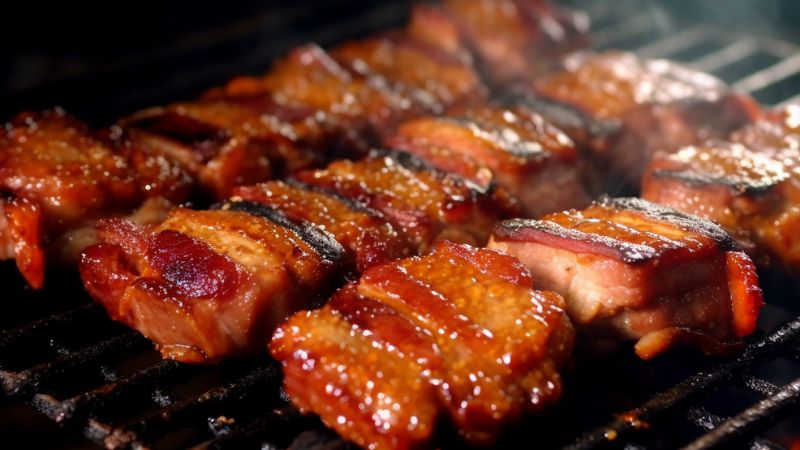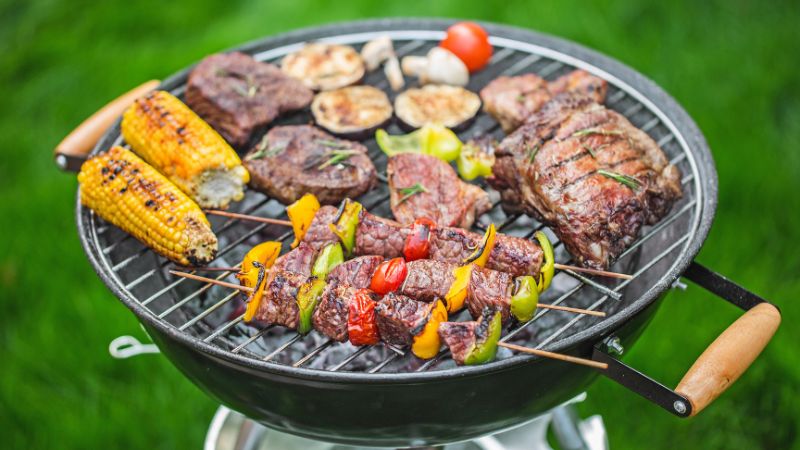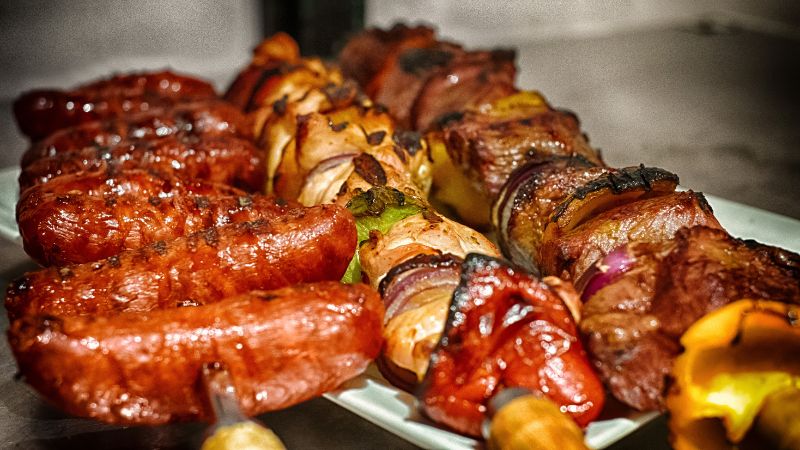Barbecued meat with its irresistible aroma and taste is always a top choice for gatherings. However, aside from its appealing flavor, many are also concerned about the potential cancer risk associated with this culinary delight. So, how can we enjoy barbecued meat safely and minimize its harmful effects on our health? Let’s find out!
1 Does Barbecuing Meat Produce Carcinogens?
All types of meat contain proteins and fats, and when grilled at high temperatures, they form heterocyclic amines (HCAs), which are carcinogenic compounds commonly found in tobacco smoke.
According to the World Health Organization (WHO) and the American Cancer Society, barbecuing meat can increase the risk of cancer, especially if it’s not done properly. This risk depends on two main factors: cooking methods and grilling temperatures. Additionally, the use of preservatives or harmful chemical marinades also contributes to the potential risk.
The formation of PAH and HCA is higher in red meat and processed meat such as ground beef and bacon. Moreover, smoke and charring during grilling also contribute to PAH formation. Scientific evidence suggests that a diet high in red and processed meat may increase the risk of colorectal cancer.
 Does Barbecuing Meat Produce Carcinogens?
Does Barbecuing Meat Produce Carcinogens?
2 5 Ways to Reduce the Risk of Cancer When Eating Barbecued Meat
The National Cancer Institute (NCI) recommends some simple measures to minimize potential risks when grilling meat, allowing you to safely enjoy this delicious treat:
Marinate Meat with Antioxidant Spices
Marinating meat before grilling it with antioxidant spices such as garlic, ginger, rosemary, and green tea can help reduce up to 90% of HCA formation, which are carcinogenic compounds.
Marinades made from yogurt, lemon juice, and herbs not only enhance the flavor of the meat but also contain compounds that prevent the formation of HCAs.
Partially Cook the Meat Before Grilling
This method is suitable for larger pieces of meat. You can partially cook the meat in a microwave, oven, or stove before grilling it over charcoal. This reduces the time the meat is exposed to direct heat, minimizing the formation of HCAs and ensuring food safety.
 Partially Cook the Meat Before Grilling
Partially Cook the Meat Before Grilling
Trim the Fat
Removing excess fat from the meat before grilling helps reduce the risk of charring and the formation of harmful compounds. Additionally, it’s recommended to grill the meat in the center of the grill and turn it frequently to ensure even cooking.
Combine with Vegetables and Fruits
Grill vegetables and fruits rich in antioxidants and fiber alongside the meat. This not only balances the nutrition but also helps reduce the formation of HCAs.
Maintain a Low Grilling Temperature
Grilling meat at low temperatures allows it to cook evenly without burning, minimizing the production of carcinogenic HCA and PAHs. Also, avoid direct contact between meat fat and juice with the fire, and remove charred parts before consumption.
 Maintain a Low Grilling Temperature
Maintain a Low Grilling Temperature
Barbecued meat is undoubtedly tempting, but grilling at high temperatures can pose health risks. By following the simple tips shared in this article, you can safely indulge in the deliciousness of barbecued meat while minimizing potential health hazards.
Source: Sức khỏe và Đời sống Newspaper
“The Four Signs of Premature Aging: Are You Guilty of These Bad Habits?”
“Aging is an inevitable process, and after 34, it tends to accelerate. However, the visible signs of aging can vary significantly from person to person. While some individuals may start to exhibit more pronounced indicators of growing old, others seem to defy these changes, maintaining a youthful appearance. Unraveling the mysteries behind this variation is a complex endeavor, involving a multitude of genetic, environmental, and lifestyle factors.”




































